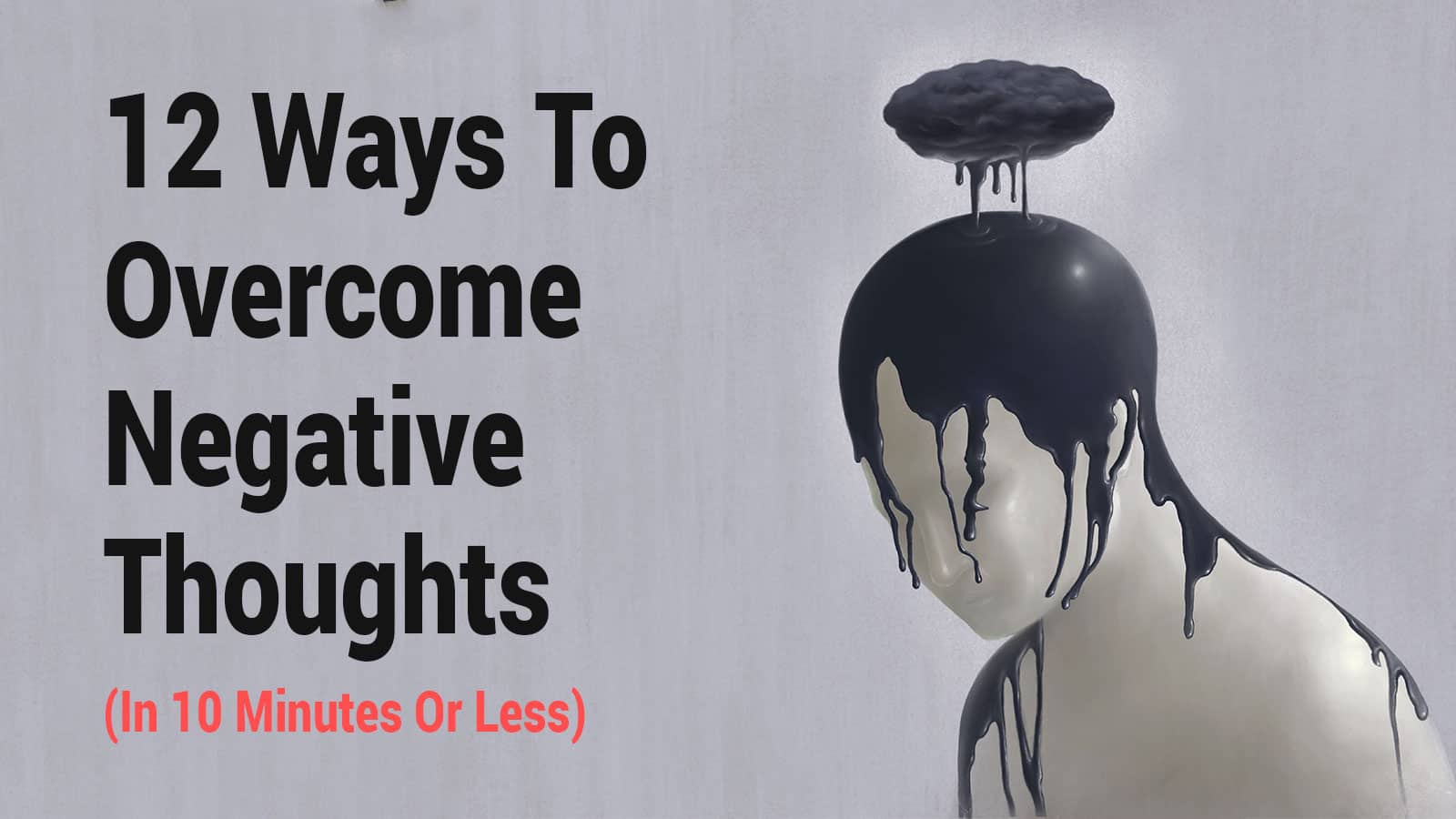It’s pretty easy to be happy and content when things are going well in your life; but what about when circumstances change for the worse? How do you react when things change over into difficult times?
Dwight Moody once said, “Character is what you are in the dark.” These dark moments are a reflection of your inner strength, courage, and resilience. Most people go through at least one very difficult time in their life – grief over the loss of a loved one, poverty, job loss, homelessness, or some other tremendous hardship which tests every ounce of strength they can muster.
Here’s something to remember that is easy to forget: you are much stronger than you think. And you are stronger still for going through difficult times. You’ll go through an inner storm; you’ll suffer; you’ll beg for it all to end, and it eventually will. When it does end, you’ll come out stronger and better than before.
Here are 4 ways to get you through life’s most difficult times:
1. Remember that happiness comes from within
Our society is inundated with messages of consumerism and materialism. The constant barrage of messages from the advertisement and marketing industries has created the illusion that more stuff means more happiness. This is simply untrue.
Sure, a spending spree at the local mall can provide some pleasure…temporary pleasure. Spending is never a long-term solution for easing pain – in fact, it’s just the opposite. In developed countries, most households have debt amounts that exceed their disposable income. This overspending has had tremendous repercussions on individuals and families.
The truth is that happiness will always be found internally. Doing things that truly promote happiness – being grateful, learning, playing, curiosity, meditation, exercise, prayer, family time, etc. – will provide genuine happiness…even in very difficult times.
No matter what is happening externally, you can tap into this inner source of happiness. Yes, the external circumstances of your life have an effect, but it’s not to the degree that you may think. It’s still possible to tap into a multitude of things – both discovered and undiscovered – that will create true happiness. Find those things and focus on them.
2. Acknowledge your emotions
When pain – especially tremendous pain – presents itself, it is natural to want to run away and ignore it. Ask anyone who’s lost a child, parent, or someone near and dear to their heart. Quite understandably, the last thing they want to do is relive the hurt of that loss.
But the truth is that emotions need to be faced and experienced. Yes, you may worry because emotions can be overwhelming. As a result, many fear that they won’t be able to handle them. Just remember what was discussed in the introduction – you are stronger than you think.
Dr. Christina Hibbert, author of This is How We Grow, has experienced some tumultuous times – losing one sister at age 8, and another sister (and her husband) at a later age. As a result, she inherited an extended family; including two children as a result of the second sister’s death.
She’s certainly earned the right to give her advice, so here are her own words:
“(Ignoring your emotions) is like trying to run away from something that’s right on your shoulder. The only way to truly be free is to stop and face your emotions…people tend to get stuck because they’re not feeling their emotions…they are not letting themselves really feel the pain, loss, sadness, anger, that is lurking within.”
Hibbert developed her own grief coping method called TEARS – “Talking, Exercising, Artistic express, Recording or writing experiences, and Sobbing” she continues, “These five things can give us something to do when feeling overwhelmed by stress.”
3. Remember to be grateful (even for the little things).
When dark moments happen in life, it’s easy to forget a lot of things, including gratitude. Emotions overtake our rational thought processes when we are overwhelmed with any type of stimuli, including pain.
The beautiful thing about gratitude is that you’ll never run out of it. Being grateful is all about perspective. Thinking about or meditating on the abundance in your life is a wonderful way to bring these things to the surface.
For example, if you are reading this right now, you have a computer (or smartphone) and internet access. Only about 40% of people in the world have access to the internet; with even fewer having access to a device such as a smartphone or computer. Did you have something for breakfast or lunch? About 1 billion people have gone without. Have you earned more than $1.25 today? About 1.2 billion people in the world have received less.
These statistics are not meant to create guilt, but to cause a change in perspective. There are destitute people all over the world that still manage to create happiness under far more difficult circumstances. Find something in your life to be grateful for and focus on it.
(As a side note): If able, please consider giving your time or money to those less fortunate. There are many great organizations focused on reducing and eradicating hunger, poverty, and disease in countries all over the world. These people need strong individuals to take a stand and help.
4. Practice being present
You’ll find that this is a consistent theme through much of the material on this site: the practice of being present. Living in the here and now is so important, and it helps you to deal with problems as they arise – without judgment, hesitance, or objection. Things are just as they should be, for better or for worse.
Regardless of the painful circumstances facing you, it is important to realize that this is where you are, wanted or unwanted. You can attempt to dodge, avoid, suppress or deny, but in the end, it just is what it is.
Being present goes beyond dealing with painful circumstances. Mindfulness and presence enable you to express full joy and gratefulness towards the blessings in life. Further, it allows you to perceive these blessings better when they do surface.
Resist the urge to judge what has happened in the past or what may happen in the future. All you have and all that you are guaranteed is the present moment. Take full advantage of the moment and appreciate the beauty of life that exists all around you.
Of course, being present sometimes involves pain, but it will be okay. Allow yourself to experience the moment, however painful it may be, knowing that it will pass…you will eventually flourish as a person – perhaps as a better version of yourself.
























